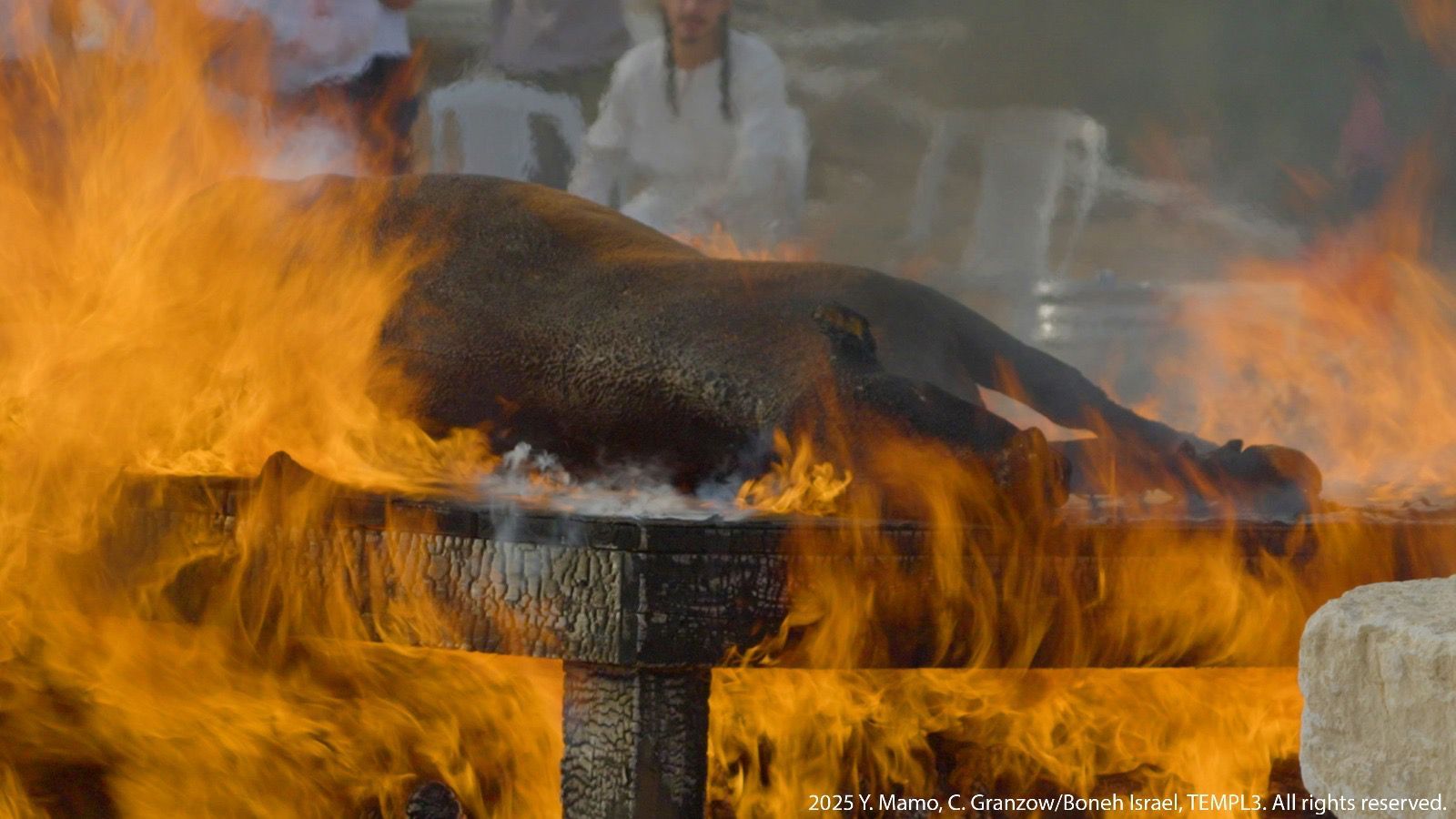Eminem on Donald Trump: A Lesson in Logic for Musicians
During the late 1970s, I booked or helped present concerts with trailblazers like Larry Norman, Randy Stonehill, Phil Keaggy, the Archers, Found Free, and Honeytree. Their songs were wide-ranging. They were about coming clean, like “Rattle Me Shake Me,” nature, such as “Here Comes the Sun,” and our eternal destiny. “I Wish We’d All Been Ready” had many of us Arminians back at the altar.
Every time these musicians arrived, whether in a rattly repurposed school bus or via a driver, there was an official interview of sorts—as a young Christian, I wanted to know if they were authentic in their faith. I suppose nothing has changed with this routine. Most recently, I’ve walked away smiling from time with Shane and Shane, Dylan Thomas, Brooke Ligertwood, Brandon Lake, Cody Carnes, JVKE (the Lawsons), Michael W., and others. From little to lots of time, it’s been uplifting.
Against this backdrop I’ve watched some singers in the secular space make rather bold statements—and was reminded of this public and private scrutiny of musicians’ public statements and lifestyle choices. Let me focus on one, as it highlights this election season.
Eminem’s Bold Statements and Public Scrutiny
Eminem’s heartfelt Shadyverse clip is making its rounds anew, and so did he at Kamala Harris’s Detroit rallies. In his Shadyverse clip he asks what does billionaire Donald J. Trump have in common with his base? Fair question, but with a misguided conclusion.
To reframe the rapper – Can a rich person give sagacious advice and show compassion to a poor person, let alone to a country? Eminem emphatically answers in the negative, and claims Trump “brainwashed” them in the past and is doing so again. This alleged “Trump derangement syndrome” didn’t escape the top-rated late-night show, GUTFELD!, which chastised Eminem for asking this (August 15, 2024). Greg Gutfeld earns a $7 million annual salary—but he didn’t ask the question.
Russell Moore’s Perspective and the Evangelical Dilemma
Likewise, Christianity Today’s poignant editor, Russell Moore, comes to a similar conclusion about many of Trumps’ Evangelical followers (“What Hath Jerusalem to do with Mar-a-Lago?,” July/Aug. ’24). A follow up on the recent presidential debate likely accents his talking points, as captured in Importantville’s “Hoosiers React to Debate.” (But Moore fails to offer an alternative for conservative Evangelical voters, a plan B.)
"However, those on stage, especially those of leading worship services, need to keep in mind the scrutiny that follows bold statements. Also, there’s never a place for vitriol from the platform or ad hominem banter—especially one in crucifix’s shadow."
Scrutiny? Eminem is the same rapper who said, “Money doesn’t buy happiness, it buys crazy-a** happiness.” He’s one of America’s 22 million millionaires, whose “Houdini” release out-trended Trump on X the morning after Trump’s 34-count verdict. If we subject this music genius to the same scrutiny pastors face on the “Preachers in Sneakers” website, we’d find a disconnect between a Detroit-born rapper worth around $230 million and his millions of followers. (Numerous high-profile pastors could also be thrown into this discussion.) Behind the rapper’s grunge look on the screen is his Spiderman comic book worth at least $1m, besides a fleet of cars and a Michigan mansion the size of many museums.
Eminem is sui generis, and like Trump, he also owns a lot of glitter. So, let’s look more closely at his premise, and do so by asking a more fundamental question. Does people’s wealth factor into the truthfulness and/or usefulness of their statements about the greater good?
Examining Wealth, Fame, and Influence
One might ask does the wealth of a visiting Christian singer determine their resonance with ticket buyers? I’m a bit longer in the tooth than many of you, and have seen a lot—some magnificent homes, ranches, cars, livestock, hunting reserves and more owned by those leading massive worship venues. However, they remain humble, powerfully motivating, and from my perspective grounded.
Many of them also have their impoverished stories (cf. “Unsung Hero” and “The Jesus Music”).
Brandon Lake told me that to fund his first album he tattooed contributors’ names on his leg! Last week, his dad (Mack) confirmed this, saying Brandon believed in the project and needed another $30,000 for the $50,000 price tag. There’s still some of that journey in his mettle as he sings.
Historical Counterpoints to Eminem’s Premise
Eminem’s statement against Trump simply doesn’t square with history. Do your statements? Let’s look at a few examples that counter Eminem’s declaration.
SoJourner Truth’s 1951 “Ain’t I a Woman!” speech in Akron, Ohio was one for the ages, in whatever version is actually authentic. She moved crowds and resonated with the poor and middle classes, also with a reach to the rich. Her insights transcend tax brackets to the present.
Former president Obama is among the most eloquent political speakers in recent memory, and stands alongside President Reagan. After POTUS 44’s comments about keeping money in focus, he continued “ . . . it’s only when you hitch your wagon to something larger than yourself that you realize your true potential.” Whether Obama has three mansions, as he does now, or the rumored fourth in Hawaii, is irrelevant to the merit of that statement and his countless other gems.
Do you know the palace-born Churchill’s* net worth (or debt) at the time of his immortal words?
“. . . We shall fight on the beaches, we shall fight on the landing grounds, we shall fight in the fields and in the streets, we shall fight in the hills; we shall never surrender . . . .”
That was June 4, 1940, as his oration helped his Isle stand firm against the same ideological antisemitism now substituting the swastika for Hamas’s Dome of the Rock emblem behind two swords.
A year after this Churchill speech, Virginia Woolf died as bombs ravished her London home. She, too, had a solid financial and educated beginning, and would become part of the Bloomsbury group—though not without her loss of loved ones and personal trials. Her writings still speak to millions, including her 1925 book, “Mrs. Dalloway” (1925)—using protagonist’s Clarissa’s high society lens to address issues taboo at the time.
From Paine to Present-Day America
Perhaps Eminem had Thomas Paine in mind of “relating to his base.”
Only a year after his several failed English businesses and near trip to debtor’s prison, Paine found a patron in Benjamin Franklin and passage to America—and a voice for America’s first native news outlet. After only a year in America, Paine’s words resonated with most “Americans” in his “Common Sense” pamphlet: “Some writers have so confounded society with government, as to leave little or no distinction between them; whereas they are not only different, but have different origins. Society is produced by our wants, and government by our wickedness; the former promotes our happiness possitively by uniting our affections, the latter negatively by restraining our vices. . . . Society in every state is a blessing, but Government, even in its best state, is but a necessary evil; in its worst state an intolerable one.”
Perhaps Gutfeld or Anderson Cooper should host Russell Moore to discuss a more appropriate question he raises in his most recent Christianity Today editorial, do we need to be “explicit and total” in our support of any candidate? The difference between Moore and those like Paine is that Moore hasn’t wandered from his ardent belief in biblical truths and promises. Still controversial, but in a recognizable context.
Paine shifted considerably as he abandoned even a pretense of such belief while supporting the French Revolution. No more than nine people were by his casket on the very soil he abandoned—America’s.
Moore’s question is a bit different, however. In his editorial he asks if these conservatives should be following (and many doting over) Trump given his morality record which clashes with biblical norms. The same could also be asked of Kamala Harris for her suspect rise to power, ethical issues surrounding President Biden’s dementia, and abortion and transgender operation views.
Questions That Linger for the 2024 Election
Eminem’s query is in the shadow of others’ questions, like “Why did 74 million people vote for Trump in 2020,” and, “Why did multiples more tune into to his interviews with Elon Musk and Joe Rogan?”
Eminem, Moore, Gutfeld, Cooper, and a mélange of influencers aren’t looking to escape across the seas like Paine—though some celebrities have hinted of such if a Red Wave hits. Common sense should caution all of us to beware of what washes ashore, or what cloaked ideologies will appear out of this election fog while some people are emphasizing the wrong questions.
It’s not Trump’s wealth that makes him unrelatable to his base, nor what attracts most followers. Eminem has the right to support either candidate, but like anyone with a platform, withstand scrutiny.
Most of us can’t relate to Trump’s $100,000 gold watch, but we can relate to solid policies, transparency, and to personal failures. Whether he can admit the latter is another matter, and likely will factor in the 2024 election’s outcome.
In the meantime, while on your music platform, real or virtual, don’t make the Eminem mistake with politics. Creative rap doesn’t guarantee reason, nor does volume insure veritas. And whatever you say in support of either party, it’s not how well your voice sounds in the moment but resounds with the facts outside of it.
Editors Note: Publishing this article is not an endorsement of Trump, nor does it signal support for any particular person or political party. As a publication, we remain neutral, focusing instead on content that serves and resonates with our readers. This piece was written by Jerry Pattengale, one of the world’s foremost scholars, who also shares a deep love for the Lord and for our publication. Jerry has been exploring ways to engage with topics that align with our mission, and we felt this article was particularly relevant given the increasing interest in political discussions within our audience—especially among prominent worship leaders. We’d approach a similar article about any other public figure, like Kamala Harris, with the same openness, provided it met our publishing standards and served our readers well.



